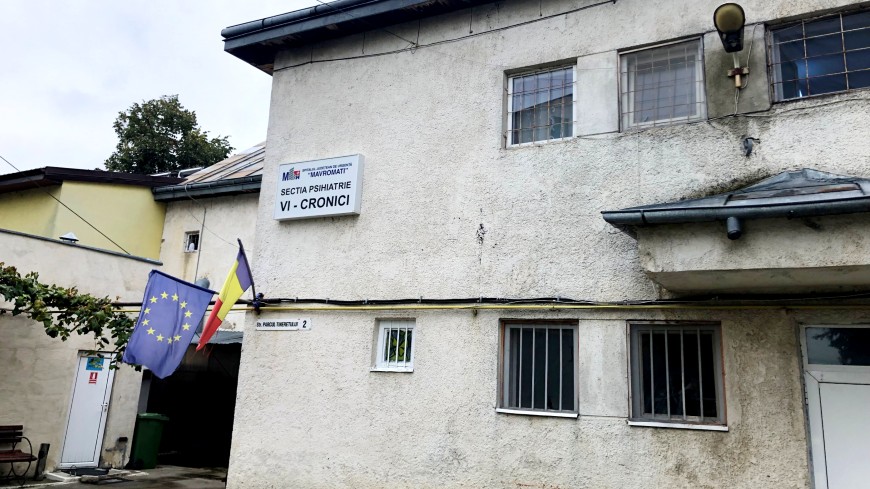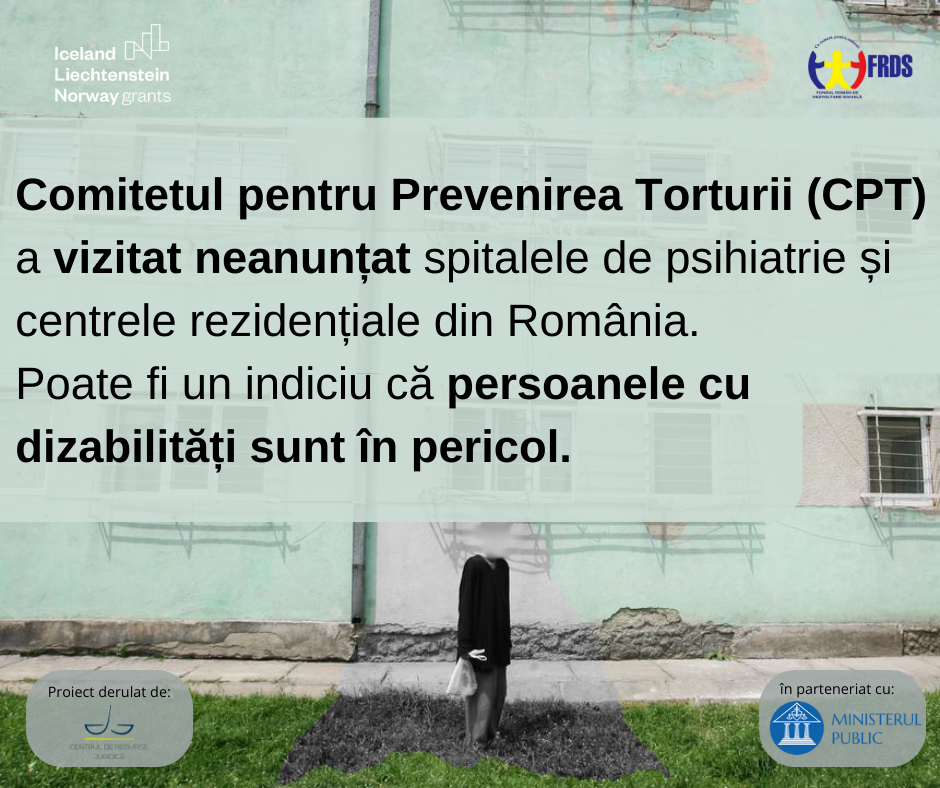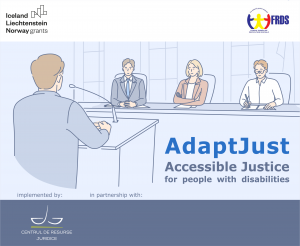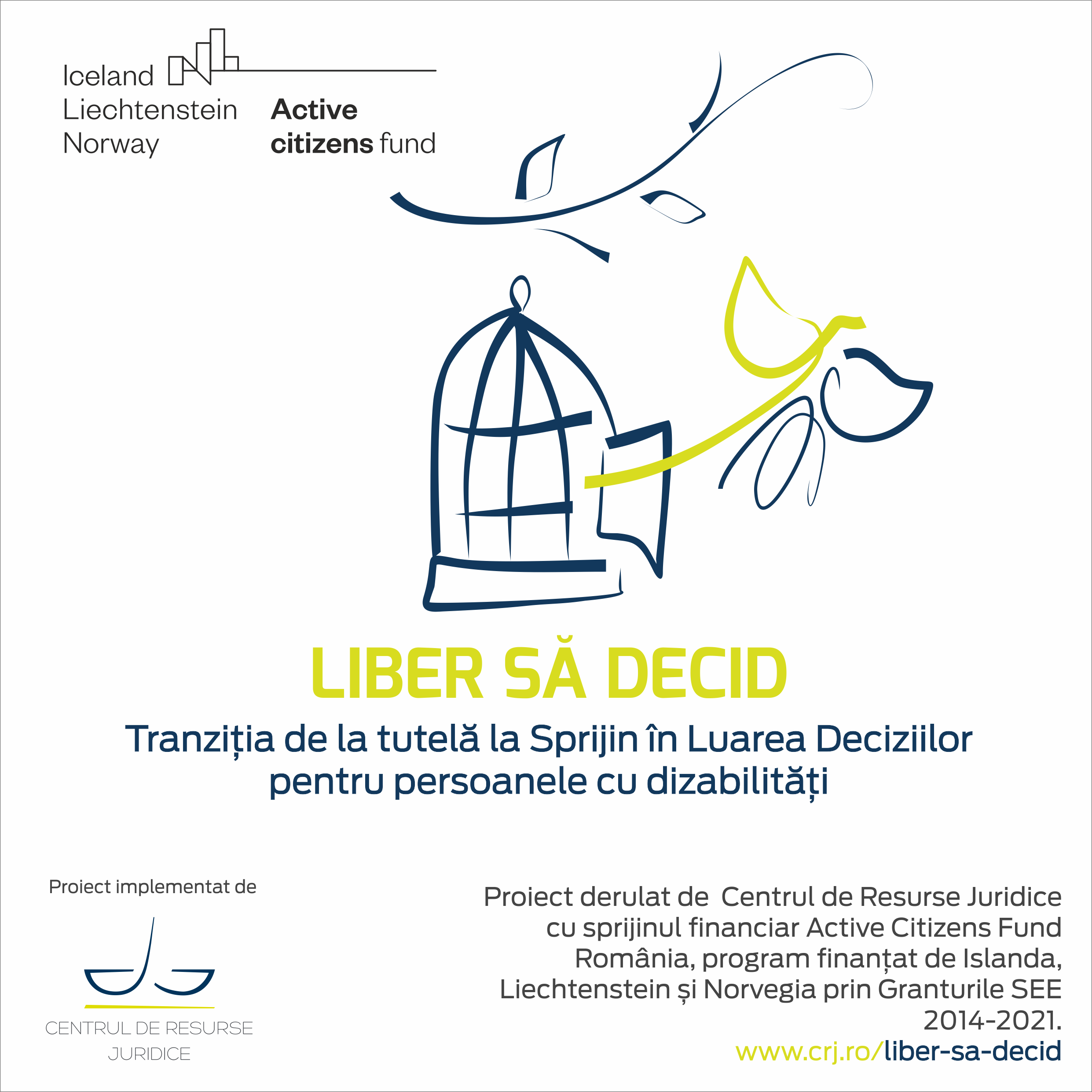In September, the Legal Resources Centre met representatives of the Committee for the Prevention of Torture and Inhuman or Degrading Treatment or Punishment (CPT) in Romania on an unannounced visit to psychiatric hospitals and residential centres for people with disabilities.
The CRJ spoke about the observations from the unannounced monitoring visits: prolonged admissions to psychiatric hospitals due to lack of services in the community, unresearched causes of deaths in psychiatric hospitals and centres, physical restraint and isolation, overcrowding in hospitals and centres. However, the Legal Resource Centre has been denied formal and unannounced access to psychiatric hospitals since 2017.
An unannounced visit from the CPT may be an indication that people with disabilities are at risk.
This was the thirteenth visit of the CPT delegation to our country, but this time it was unannounced. Normally, these visits are scheduled and announced to the states at least a year in advance. Just this summer, representatives of the Committee of Ministers of the Council of Europe visited Romania twice in the space of just four months. Each time they met with representatives of the government who should normally be responsible for the lives of people with disabilities.
An unannounced visit by a Committee which aims to prevent inhuman or degrading treatment is a strong signal for the CPT to send. In recent years, Romania has been condemned by judges of the European Court of Human Rights in 16 cases for violating the rights of people with disabilities.
Romania’s psychiatric system – victim of degrading treatment by health ministers themselves.
As we have shown in countless cases and as has been documented in the press, the lack of community psychiatric services continues to claim victims among people who could have a decent life with their families.
We are once again sounding the alarm to the Ministry of Health, Minister Alexandru Rafila and Prime Minister Nicolae Ciucă that Romania does not have a mental health department within the Ministry of Health even at this date, September 2022. Moreover, the named ministry has not requested a single leu for the community psychiatry system from the money allocated through the Operational Health Programme (POS) 2021- 2027.
Thus, once in a psychiatric ward, the chances of a person with a mental health diagnosis leaving the system decrease by the day. People admitted involuntarily can remain in hospital for decades, masking a lack of funding for community services.
Although condemned at the ECHR for this, in Romania in 2022 patients with psychosocial disabilities are taken to court in groups to have these involuntary admissions officially confirmed against the law.
Once in the system, these people become registration numbers. The deaths of these people are not investigated, those responsible are rarely held accountable. The Romanian medical system does not yet have clear, official statistics on deaths in psychiatric and residential centres. The government still shows no interest in employing psychiatric doctors, psychologists and social workers in community mental health services.
❗ We request the Ministry of Health, Minister Alexandru Rafila and Prime Minister Nicoalea Ciucă to urgently take the necessary measures, including:
- The appointment of a coordinator at government level for the execution of the obligations arising from the ECHR judgments against Romania on psychiatry and the rights of persons with disabilities.
- Implementation of a concrete, urgently budgeted plan for the community psychiatry system.
- Take over the National Coordination Mechanism for the implementation of the UN Convention on the Rights of Persons with Disabilities at the level of the Prime Minister’s Office.
The Council of Europe website has already published the first information about the CPT representatives’ visit to Romania. You can read below HERE the original text, in which you will also find the list of hospitals and centres visited unannounced.
Currently, the CRJ is running the AdaptJust – Accessible Justice for People with Disabilities programme. The overall objective of the project is to improve the implementation of the judgments of the European Court of Human Rights and the Decisions of the Committee of Ministers of the Council of Europe on the rights of persons with intellectual and psychosocial disabilities.







